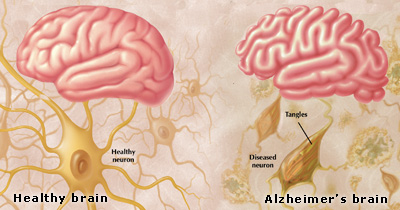Common Eye Disease Not Tied to Dementia: Study
No link seems to exist between the common eye condition known as age-related macular degeneration and either dementia or Alzheimer’s disease, a large new study shows.
Age-related macular degeneration is a leading cause of vision loss among people aged 50 and older, according to the U.S. National Eye Institute. The condition leads to damage to the macula, which is a small spot near the center of the retina. The macula is needed for sharp central vision, which allows people to see objects straight ahead of them.
Dementia, Alzheimer’s disease and age-related macular degeneration are all strongly associated with aging. These conditions share risk factors such as smoking, high blood pressure and High cholesterol. However, the genetic risk factors for the eye condition and Alzheimer’s or other dementia seem to be different, according to study background information.
British researchers examined whether people with age-related macular degeneration were more likely to develop dementia/Alzheimer’s or vice versa. The study included nearly 66,000 patients with the vision condition, more than 168,000 patients with Alzheimer’s or other dementia, and more than 7.7 million people in a comparison group.
The results showed that people with macular degeneration condition did not have an increased risk of Alzheimer’s or other dementia. The report is published online Nov. 14 in the journal JAMA Ophthalmology.
However, patients with dementia appeared to be less likely to receive treatment for their macular degeneration. Several factors may contribute to this. One might be that people with dementia are less likely to get eye exams, the researchers said in a journal news release.

“However, people with dementia in England are substantially less likely to undergo treatment for [the vision condition] than those without dementia,” they added. “Potential barriers to care for these vulnerable individuals need to be examined and addressed in the near future.”
###
© HealthDay